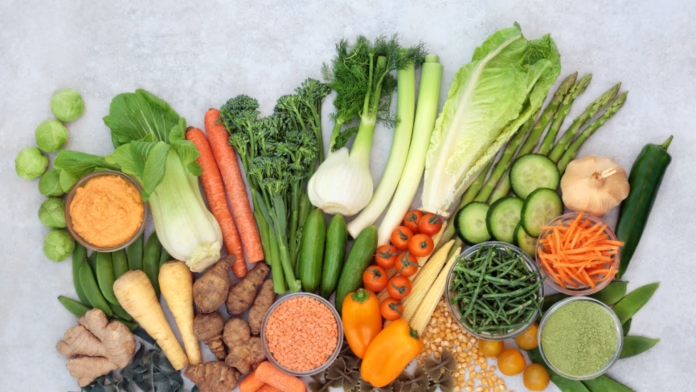Protein is an essential macronutrient that plays a crucial role in our overall health and well-being. It is responsible for building and repairing tissues, supporting immune function, and providing energy. While many people associate protein with animal sources like eggs, meat, and dairy, there is a wide variety of plant-based protein options available. In this article, we will explore the benefits of choosing vegetarian protein sources and introduce you to a selection of high-protein vegetables that can serve as the perfect egg substitute in your diet.
Why Choose Vegetarian Protein Sources?
There are several reasons why individuals may choose to follow a vegetarian or plant-based diet. Ethical considerations, environmental concerns, and health motivations are among the common factors. Vegetarian protein sources offer numerous benefits, including lower saturated fat and cholesterol content compared to animal proteins. They are also rich in fiber, vitamins, minerals, and antioxidants, which contribute to a well-rounded and balanced diet. Incorporating vegetarian protein sources into your meals can support a healthy lifestyle and promote sustainable food choices.
High-Protein Vegetables: The Perfect Egg Substitute
Fortunately, there are numerous high-protein vegetables that can serve as excellent substitutes for eggs. These vegetables not only provide a good amount of protein but also offer a wide range of other essential nutrients. Let’s explore some of these protein powerhouses:
- Lentils:
Lentils are legumes packed with protein, fiber, and various vitamins and minerals. They are a versatile ingredient that can be used in soups, stews, salads, and even veggie burgers. A half-cup serving of cooked lentils provides around 9 grams of protein.
- Chickpeas:
Chickpeas, also known as garbanzo beans, are another legume that is high in protein and fiber. They can be used in salads, curries, hummus, or roasted for a crunchy snack. Half a cup of cooked chickpeas contains approximately 7 grams of protein.
- Quinoa:
Quinoa is a complete protein source, meaning it contains all nine essential amino acids. It is also rich in fiber, magnesium, and iron. Quinoa can be enjoyed as a side dish, added to salads, or used in place of rice in various recipes. One cup of cooked quinoa provides about 8 grams of protein.
- Peas:
Peas are a versatile vegetable that can be enjoyed fresh, frozen, or canned. They are a good source of protein, fiber, and vitamins. Peas can be added to stir-fries, pasta dishes, soups, or used in salads. One cup of cooked peas contains around 8 grams of protein.
- Spinach:
Spinach is a leafy green vegetable that is rich in protein, iron, calcium, and vitamins A and C. It can be used in salads, smoothies, stir-fries, or sautéed as a side dish. One cup of cooked spinach provides approximately 5 grams of protein.
- Broccoli:
Broccoli is a nutrient-dense vegetable that is high in protein, fiber, and vitamins C and K. It can be steamed, roasted, or added to stir-fries and salads. One cup of cooked broccoli contains about 5 grams of protein.
- Brussels Sprouts:
Brussels sprouts are a cruciferous vegetable that offers a good amount of protein, fiber, and vitamins. They can be roasted, sautéed, or added to salads and stir-fries. One cup of cooked Brussels sprouts provides around 4 grams of protein.
- Cauliflower:
Cauliflower is a versatile vegetable that can be used in a variety of dishes. It is low in calories and carbohydrates but high in protein, fiber, and vitamins. Cauliflower can be roasted, mashed, used as a rice substitute, or even made into cauliflower “steaks.” One cup of cooked cauliflower contains approximately 3 grams of protein.
- Sweet corn:
Sweet corn is a delicious vegetable that is high in protein, fiber, and antioxidants. It can be boiled, grilled, or added to salads, soups, and salsas. One cup of cooked sweet corn provides around 5 grams of protein.
- Kale:
Kale is a nutrient powerhouse that is rich in protein, fiber, vitamins A, C, and K, and various minerals. It can be enjoyed in salads, smoothies, sautéed dishes, or baked into crispy kale chips. One cup of cooked kale contains about 2 grams of protein.
Cooking Tips and Recipes Incorporating High-Protein Vegetables
Incorporating high-protein vegetables into your meals can be both delicious and nutritious. Here are some cooking tips and recipe ideas to help you make the most of these protein powerhouses:
- Lentil and vegetable curry: Combine cooked lentils with a variety of vegetables, spices, and coconut milk for a flavorful and protein-packed curry.
- Chickpea salad: Toss cooked chickpeas with diced vegetables, herbs, and a tangy dressing for a refreshing and protein-rich salad.
- Quinoa-stuffed peppers: Fill bell peppers with a mixture of cooked quinoa, vegetables, and spices, then bake until tender for a satisfying and protein-packed meal.
- Pea and spinach soup: Blend cooked peas and spinach with vegetable broth, garlic, and herbs for a nourishing and protein-rich soup.
- Broccoli and cauliflower stir-fry: Sauté broccoli and cauliflower florets with garlic, ginger, and soy sauce for a quick and protein-packed side dish.
- Sweet corn and kale salad: Combine cooked sweet corn, chopped kale, cherry tomatoes, and a lemon vinaigrette for a refreshing and protein-rich salad.
Protein is an essential nutrient that plays a vital role in our overall health and well-being. While eggs have long been considered a popular protein source, there are plenty of high-protein vegetables that can serve as excellent substitutes. Lentils, chickpeas, quinoa, peas, spinach, broccoli, Brussels sprouts, cauliflower, sweet corn, and kale are just a few examples of protein powerhouses that can be incorporated into your meals to meet your daily protein needs.
By embracing these vegetarian protein sources, you can enjoy a diverse and nutritious diet while supporting sustainable food choices. So, why wait? Start exploring these high-protein vegetables and discover the endless possibilities they offer in your culinary journey.





